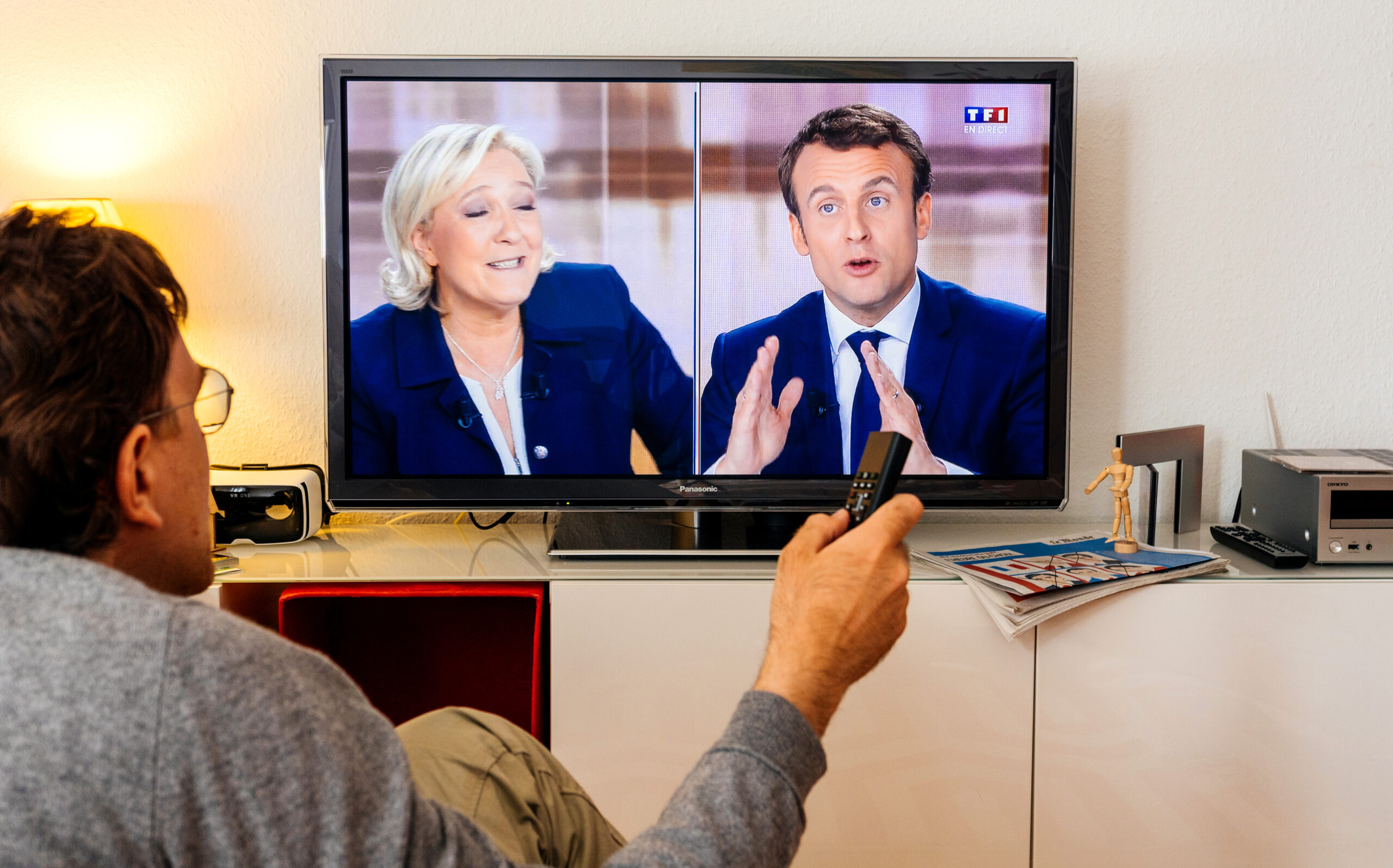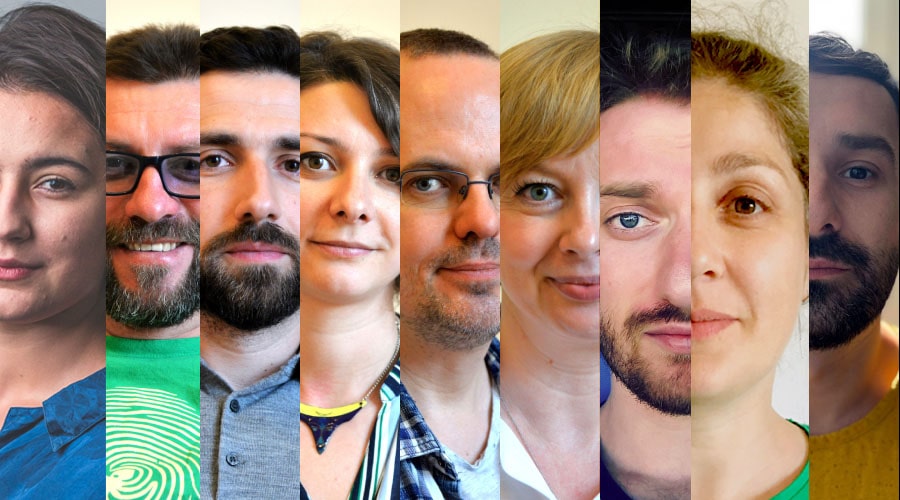Un newsletter pentru cititori curioși și inteligenți.
Sunt CuriosAjută-ne să existăm. Dacă te abonezi cu doar 3€ pe lună, noi vom putea să-ți oferim în continuare jurnalism independent, onest, care merge în profunzime, să ne continuăm lupta contra corupției, plagiatelor, dezinformării, poluării, să facem reportaje imersive despre România reală și să scriem despre oamenii care o transformă în bine.
Vrei să ne ajuți? Orice sumă contează.
DoneazăPentru sugestii de materiale sau colaborări, scrieți-ne la adresa: contact@pressone.ro.
Pentru parteneriate media, proiecte sau dacă doriți să fiți partenerul nostru și să susțineți PressOne: marketing@pressone.ro.

Correspondence from France: The Far Right at the Gates of Power
Rassemblement National, the far-right party led by Marine Le Pen, won nearly 30% of the vote in the first round of France’s legislative elections. For France, a country that gave birth to human rights and is a land of immigration, the rise to power of such a party would jeopardize the values embodied in its motto: liberty, equality, fraternity.
“This is not an evening like any other. Tonight’s lesson is that the far right is at the gates of power,” warned Prime Minister Gabriel Attal in a serious tone on Sunday, following the announcement of the first-round results.
- With nearly 30% of the vote, Rassemblement National (RN) outpolled the left-wing New Popular Front (28%) and President Emmanuel Macron’s party (20%).
- The outcome of the second round, scheduled for July 7, will largely depend on the position of the centrists and the right, who can either call for the support of a left-wing candidate or ask their candidate who came third in the first round to withdraw.
- More than 20 years after the shock of April 21, 2002, when Jean-Marie Le Pen advanced to the second round of the presidential election against Jacques Chirac, the united front against the far right, which once brought together all republican parties, is no longer a certainty.
The Prime Minister was clear: we must “prevent the Rassemblement National from obtaining an absolute majority in the second round, from dominating the National Assembly.”
The far right has polished its image, aided by Macron’s condescension
President Emmanuel Macron has called for a “broad, clearly democratic and republican reunion” to counter the RN. However, not all centrist and right-wing leaders have heeded this call. A faction of the right, notably Les Républicains, heirs to General de Gaulle’s legacy and his fight against the extreme right, has declared its support for an alliance with the RN. This marks the final stage in the normalization of the party, which was founded by former SS members, nostalgists of the Vichy collaborationist regime during World War II, and former militants in French Algeria.
Emerging from deindustrialization and mass unemployment, the far-right party has established itself over 50 years. It has managed to refurbish its image by changing its original name (formerly Front National), denouncing founder Jean-Marie Le Pen’s anti-Semitic statements, and adopting a social agenda, albeit always prioritizing “French people of origin.”
In 2017, Marine Le Pen won 21.4% of the vote in the first round of the presidential election. In the 2022 legislative elections, the RN garnered 18.7% and 4.2 million votes. Today, the RN has become the leading party in France with 30% of the vote, attracting 10.4 million French voters. Leading the campaign for the European elections, the 28-year-old Jordan Bardella has established himself as a skilful young leader, adeptly using social networks like TikTok and appealing to a rural France abandoned by its population.
For two decades, post offices, maternity hospitals, police stations, and small train lines have been closing. The far-right party exploits the feeling of abandonment and decline among parts of the population, claiming to defend them and pitting them against a multicultural, predominantly urban France living in the suburbs.
Rural France seeks to take revenge against the Parisian elites and the immigrant inhabitants of urban peripheries who, according to far-right rhetoric, live on welfare.
According to a recent survey by the National Consultative Commission on Human Rights (CNCDH), 84% of Rassemblement National voters believe they live worse today than a few years ago—almost twice as many as centrist voters. The RN recognized the need to adopt a social program to address the loss of purchasing power among the French. However, in reality, the party has voted against all reforms that could have improved the situation for the most disadvantaged: they voted against raising the minimum wage, against freezing rents, and against the €1 meal for students in university canteens.
Un newsletter pentru cititori curioși și inteligenți.
Sunt curiosEmmanuel Macron reinforced this sense of social distance from citizens, who gradually felt that they were not being listened to. He has condescendingly refused to talk to the population, trade unions, or associations, determined to implement his reforms at any cost.
In an interview with Le Monde, Laurent Berger, former secretary general of the CFDT, one of France’s largest trade unions, explained: “At the time of the pension reform in 2023, we witnessed a form of social dissolution. The mobilization against this project reflected the expectations of the working world, which were not listened to. I said then that this refusal could lead to democratic chaos.”
There has also been a territorial dissolution in the country due to the contempt shown towards all those who contribute to the life of the territories, including local elected representatives and civil society, particularly associations. Finally, there is a moral fracture resulting from the rupture between politics and citizens.
Extremist Propaganda
The meteoric rise of the far-right has also relied on a media network owned by reactionary Catholic entrepreneur Vincent Bolloré. On the channels and radio stations of the billionaire’s group, immigration issues and various horrific stories of rapes, assaults, and illegal squatting dominate.
Guests often hold radical positions, while more temperate views are not always represented. RN voters interviewed in the French press say they are scared of chaos and fear the invasion of immigrants, even if they live in quiet villages with no foreign population. “But we’re not stupid, we’re watching TV,” replies a far-right sympathizer in a France TV broadcast.
The facts don’t have to be real; they are a matter of perception. The RN has understood that a quick election, organized in less than three weeks, can be won by betting on fear and emotion.
But the RN vote is now also an election of conviction and a plebiscite for a deeply discriminatory program. Far-right voters are increasingly embracing violent discourse. According to the National Advisory Commission on Human Rights, 54% of RN voters identify themselves as racist.
The last three weeks of the election campaign have been marked by violent attacks on journalists of North African origin, left-wing activists, and French citizens of foreign origin. In Avignon (south), a bakery where an employee of Ivorian origin works was set on fire and covered with xenophobic messages. In the Paris region, a bus driver was threatened and hit by an RN supporter.
In its program, the RN has renounced social measures such as pension reform, but not the adoption of discriminatory laws that contradict the very Declaration of the Rights of Man and of the Citizen, which states that “men are born and remain equal in rights.”
The RN wants to ban dual nationals from accessing certain professions, notably in the senior civil service, diplomacy, or strategic and sensitive professions. 3.5 million French people are binational, but beyond the real impact of this measure, it reflects an obsession of the far right to create categories among French people. In the same spirit, the RN wants to challenge Jus soli, which allows children born on French territory to foreign parents to obtain citizenship at 18. This is a republican foundation based on the 1889 law on which the whole integration system rests. Even the far-right Vichy regime did not touch this right.
Faced with the danger of the far-right coming to power and exacerbating inter-communal tensions, a Popular Front uniting left-wing parties, similar to the one in 1936, has been formed. However, within the Popular Front, some members of “France Insoumise,” led by Jean-Luc Mélenchon, are accused of failing to describe the October 7 Hamas attack in Israel as a terrorist act and of downplaying “marginal” anti-Semitic attacks, contradicting alarming figures from the Interior Ministry. These positions are unforgivable to some centrist voters. Will they be able, on July 7, to make a stand against the far right?
The aftermath of the elections promises to be difficult. The President of the Republic is even raising the possibility of a “civil war.” Without going that far, France could find itself without a majority in parliament, regardless of the scenario, an unprecedented and dangerous situation given the international context and the war in Ukraine.

Dacă te abonezi cu doar 3€ pe lună, noi vom putea să-ți oferim în continuare jurnalism independent, onest, care merge în profunzime, să ne continuăm lupta contra corupției, plagiatelor, dezinformării, poluării, să facem reportaje imersive despre România reală și să scriem despre oamenii care o transformă în bine.
Vrei să ne ajuți? Orice sumă contează.
Fundația PressOne
Banca Transilvania, Sucursala Cluj-Napoca
Din taxele pe profitul companiei tale, poți alege ca până la 20% să meargă către echipamente video și reportaje, nu către stat.
Descarcă draft-ul contractului de sponsorizare de AICI. Completează-l cu datele companiei și suma. Trimite-l la marketing@pressone.ro.
*Baza legală poate fi consultată AICI.
Din taxele pe salariul tău, poți alege ca 3.5% să meargă către articolele și newsletterele noastre, nu către stat.
Descarcă formularul de AICI.
Trebuie să completezi doar secțiunea I, cu datele tale personale.
Apoi depune-l la ANAF până pe 25 Mai, la organul fiscal de care aparții, fie direct, fie prin scrisoare recomandată.
Poți găsi aici lista adreselor.
Un newsletter pentru cititori curioși și inteligenți.
Sunt Curios